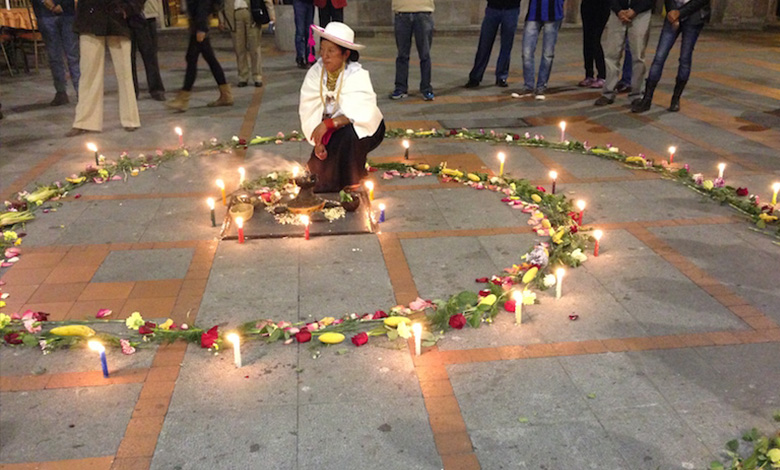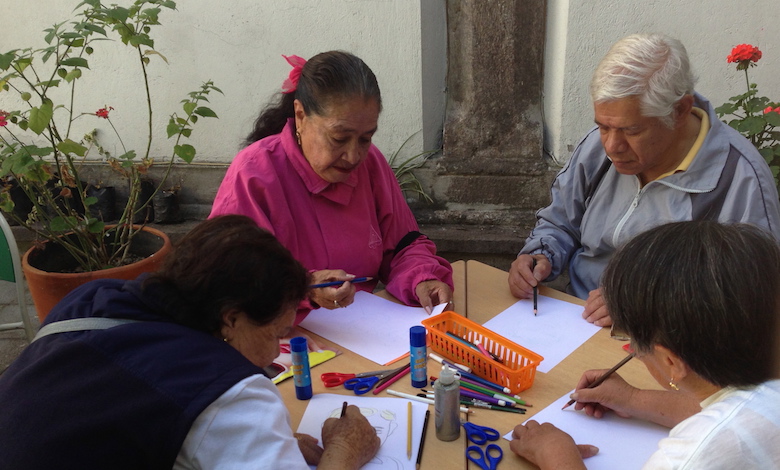
During the 19th and 20th centuries, three kind of economy were originated from different logics of production: the economy of capitalism driven by unlimited profit, the public economy driven by the legitimation of state power, and the popular economy, which is generally not visible in the system, appeals to solidarity, reciprocity and community law.
These are the realities in which culture develops its processes and in which cultural institutions must work.
Cultural Institutionalism of Private Sector
Creative industries are the driven forces for culture of the private sector. They monetize cultural activities and their permanence depends on the market. It means that culture stops being a right and becomes a resource.
Those who undertake in this sector, face the market needs. Likewise, a cultural worker must change the traditional view of culture and acquire new skills. A entrepreneur in culture is expected to be courageous, independent, risk-taking and able to successfully reach the targets. However, this environment weakens and trivializes the culture essence.
In addition, if we look at the private sector, the economic elites are the only ones able to face the needs of the cultural market. It must be taken in consideration that: if culture is treated as an economic sector, this could bring consequences to human being, society and nature. I consider culture is meant to be unalienable and liberating. These characteristics must prevail over any chrematistic.
Finally, neoliberal practices cause millennial-communities decomposition, those who take care of ecosystems, urban areas, community life, knowledge transmission and other common wealth values.

Cultural Institutionalism of Public Sector
State responsibilities in terms of culture are generally looking for democratization and setting cultural institutions at the service of citizens. When the State structure is being reorganized, projects such as cultural houses, art centers, among others will be created.
Most of the State policies aim to strengthen national identity, as well as protect and promote cultural expressions diversity. They encourage society to create, produce, disseminate, distribute and enjoy the cultural services, along with the protection of social memory and cultural heritage. All to guarantee full exercise of cultural rights. These policies should be reflected through cultural activities daily basis. However, the reality differs and the sector always lives in short supply.
Cultural Institutionalism of Solidarity-based Economy
Regarding cultural institutions of Solidarity-based Economy, there are different ways of cultural production, using several principles and values, all based in reciprocity and where culture is discussed as a community right. Policies are based on fraternity and effectiveness of words turned into facts.
Their bases are millenary and it is considered that cultural practices have been genetically transmitted from time immemorial. For example, the economy of the indigenous villages in Ecuador responds to a system based on reciprocity, autarky, solidarity and mutual aid. These values have existed way before the establishment of nation-states, back when the agro-pottery economies developed a communal production mode.
Another example is the minga. The word minga comes from the Quechua language ‘minka’ which is an ancient tradition of collective work with a social purpose.
Nowadays, this kind of organization is practiced in my hometown, San Gabriel, Ecuador. In this sense, many artistic activities, such as theater, music festivals, etc., are organized through voluntary contributions. The motivation is to provide a better quality of life to citizens.

About Cultural Institutionalism in the Commons
In order to understand the commons, it is necessary to think about: commitment to others, equity and access for everyone, consensus and cooperation.
Bringing these principles into facts will develop a cooperative culture with organizational structures that are not imposed. In this way, cultural practices will have humanistic, solidary and everyone’s ethics.
These ways of organization in which people with free will accomplish creative and cultural processes that protect the shared values by the community. In addition, these processes are observed in spaces beyond the capitals, or during covid-19 lockdown, free artistic expressions were shown on people’s balconies.
To better conceptualize the commons in culture, it is necessary to understand it as a social system that sustainably leads the shared values and the identity of the community. In a self-organization system, the communities manage the resources without depending on either the State or the market.
On the other hand, a co-construction process in the commons refers to work in constant communication, with agreed basis amongst the State, the private institutions and the popular economies. Everything that is formulated, such as public policies would result in a collective learning, in which identities are shared and everyone establishes working alliances.
Finally, participation at either the local, regional or national level would be more democratic and free of exclusions. In this ideal scenario, we would have a society that achieves its rights with shared responsibilities.











